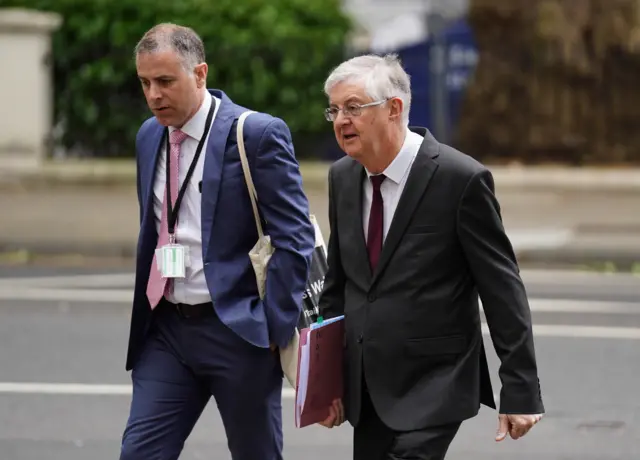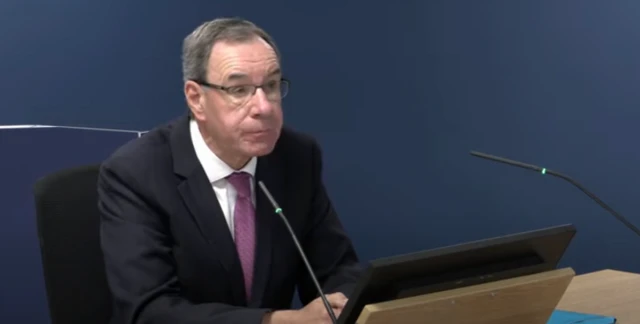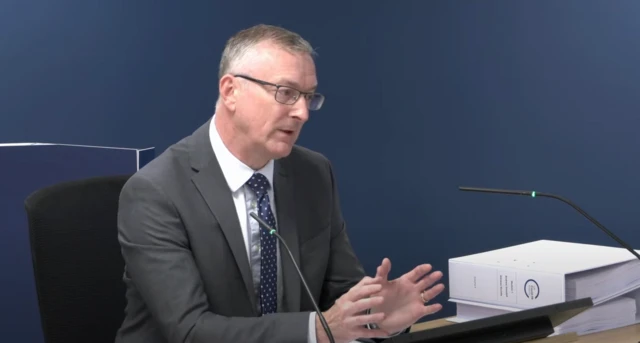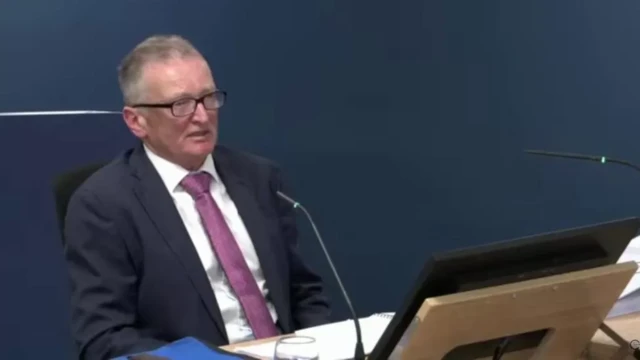Vaughan Gething next uppublished at 13:55 BST 4 July 2023
The inquiry has resumed and former Health Minister and current Economy Minister Vaughan Gething has started giving evidence to the Covid inquiry.
He was in charge of the health department when Covid struck in March 2020, having taken on the role in 2016.
He moved jobs after the May 2021 Senedd elections.
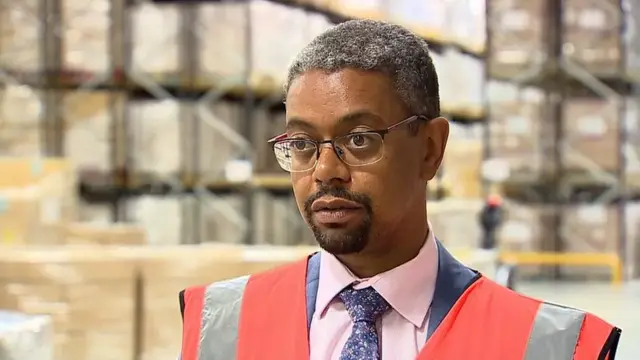
Vaughan Gething

